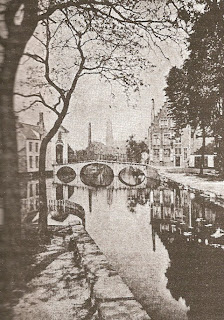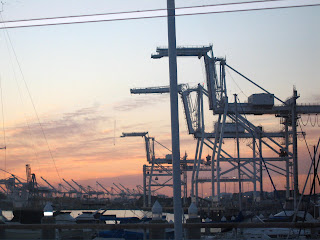

Places I would like to visit in Europe, in no order:
1. Dubrovnik
picture #1 from this site:
picture #2 from this site:
http://www.agencija-vangogh.si/eng/dubrovnik.aspDubrovnik is an historic city on the Adriatic Sea coast in the extreme south of Croatia, positioned at the terminal end of the Isthmus of Dubrovnik. It is a seaport and the centre of Dubrovnik-Neretva county.
Since 1979, the historic centre of Dubrovnik has been included in the UNESCO list of World Heritage Sites.
The prosperity of the city of Dubrovnik has always been based on maritime trade. In the Middle Ages, as the Republic of Ragusa, it became the only eastern Adriatic city-state to rival Venice. Supported by its wealth and skilled diplomacy, the city achieved a remarkable level of development, particularly during the 15th and 16th centuries. Ragusa was one of the centres of the development of the Croatian language and literature, home to many notable poets, playwrights, painters, mathematicians, physicists and other scholars.
from
Wiki.and from an article in the
Smithsonian Magazine.History resides everywhere here. “I was a child during the Italian occupation of parts of Croatia in World War II, and I still remember when the Partisans won that war,” the 71-yearold helmsman said. “Today, Tito’s communism seems to have vanished in the wind. I think it’s easier for people who have a past to put their lives in perspective.”
“In many respects, the 4,000 people living within Dubrovnik’s old city walls function as they did hundreds of years ago,” said Nikola Obuljen, 64, president of Dubrovnik’s city council, as he ambled across a limestone thoroughfare polished by centuries of foot traffic. “Venice has palazzos and the RialtoBridge, but Dubrovnik is a functioning Renaissance city where people live in the houses and shop at the markets.”
I first came to Dubrovnik in 1999 as a visitor searching for an eye in the Balkan storm. Kosovo then was in flames; Belgrade under siege. Bosnia remained intact only by force of international fiat. I needed a respite from Sarajevo, where, working as a journalism instructor, I happened to live a mile from a mass grave. That devastated city was recovering from the war that had ended there only the previous year. But as I drove south from Sarajevo toward Dalmatia, Bosnia’s once-fertile farmland offered only a succession of ghostly hamlets ethnically cleansed of inhabitants. Mostar, the last major stop before the Dinaric Alps, had been reduced to rubble. The Ottoman bridge that for centuries had spanned the Neretva River was destroyed, a casualty of the malignant xenophobia then infecting Bosnia and Herzegovina.
But as I traveled down the coastal highway beyond the mountains, the air began to warm, scenes of destruction grew less frequent and police actually began to smile. At the village of Ston, gateway to the Peljesac Peninsula, I entered the old, 530-square-mile Republic of Dubrovnik, which enjoyed an independent status for a millennium, to 1808. For the next hour, I meandered past fishing villages nestled beneath foothills verdant with vineyards. In the distance, an archipelago seemed to float in the mist. And then it appeared in the twilight: a walled city rising from the rocky coast like an Adriatic Camelot.














